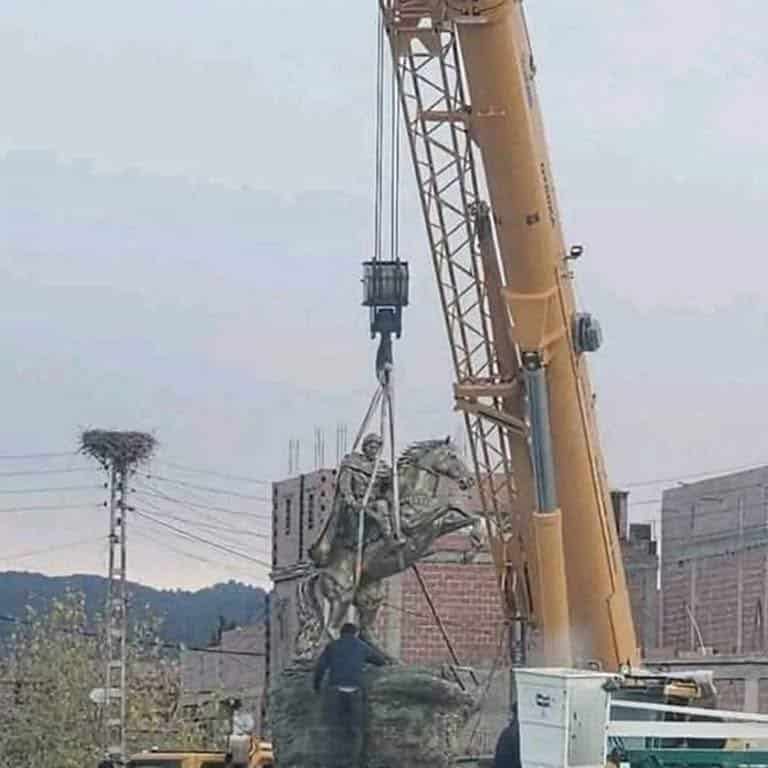Bouhmama, Algeria – In a controversial move, local authorities in Bouhmama, backed by security forces, dismantled a statue of King Aksel, an iconic Amazigh leader celebrated for resisting the Arab Umayyad expansion into North Africa during the 7th century. The statue, unveiled earlier in the morning, had sparked immediate reactions across the region as well across the globe among the Amazigh community.
Residents who gathered to witness the removal expressed outrage, calling it a blatant act of disregard for the Amazigh heritage. “This is another attack on our identity and history,” one protester said. “King Aksel is a symbol of resistance and pride for the Amazigh people. Removing his statue feels like erasing our legacy.”
Authorities claimed that the decision to remove the statue was due to procedural reasons, stating that the installation had not been approved by the central government in Algiers. “The relevant bodies in the capital were not consulted, and this statue was erected without authorization,” said a local official, who requested anonymity.

Critics, however, view this as yet another example of systemic marginalization of the Amazigh people, who have long fought for recognition of their language and culture within Algeria. Social media erupted with posts condemning the removal, with hashtags supporting Amazigh identity and calling for accountability from the authorities.
King Aksel is a revered figure in Amazigh history. As the leader of the Awraba tribe, he led a resistance against the Arab Umayyad forces, securing a significant victory in 682 CE before his eventual defeat. His legacy as a freedom fighter has been a source of inspiration for Amazigh movements across North Africa.
Observers fear that this incident could further strain relations between the Amazigh population and the government, reigniting debates over cultural preservation and national identity.
No official statement has been issued from Algiers at this time, but the removal of the statue has left many questioning whether such actions reflect a broader policy of sidelining the contributions of indigenous Amazigh figures in Algeria’s history.
Anger are expected to continue in Bouhmama and other parts of the country, as the Amazigh community calls for justice and the return of their cultural symbols.

